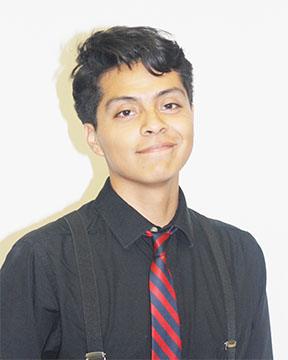Do you ever think about where and how our food comes to us? Aside from the obvious answer, which is of course from of a grocery store, but beyond that.
That is a line of thought that Professor of pharmacy technology Ralph Casas hoped his presentation would lead students on.
One of his focuses was on food and how it is produced due to the food initiative on campus, he said.
The food initiative has departments on campus, with at least one class that focuses on food, from a scientific point of view or aesthetic one, as well as others.
This leads to an end of the year food festival for students.
He presented on Science, Technology and Ethics of Food in the Social Science Building room 137, on Tuesday, Nov. 10.
Casas began by asking students to think about the benefits and downsides to our technology.
Students in the audience talked about the way smartphones have hindered social skills, while others argued that it has changed the way people socialize.
During his presentation, Casas said some of the possible consequences to our over-dependence on technology is social anxiety, depression and despondence.
But the main focus was on food and technology and how they are now connected.
“We view food in five different ways: nutrition, part of nature, part of culture, social or spiritual ways and in desideratum, or desire,” Casas said.
He added that technology has allowed for the mass production of food, which allows for convenience and makes life easier.
However, in mass production of food, pesticides and genetically modified organisms were used and the question is if people know what the effects are.
Casas said, “My desire is that students think about it, I raised a lot of questions. I tried not to give them [the students] definitive answers, more of the science behind it so they can make their own informed decisions.”
He added that students in general should ask questions, look at labels and ask themselves if those chemicals are necessary.
“Perhaps if more people ask those questions then perhaps there can be some changes,” Casas said.
Juan Pinda, philosophy major, said that Casas did a good job at conveying the information.
“Most of us live in ignorance and we’re not very informed on what’s out there,” he said.









